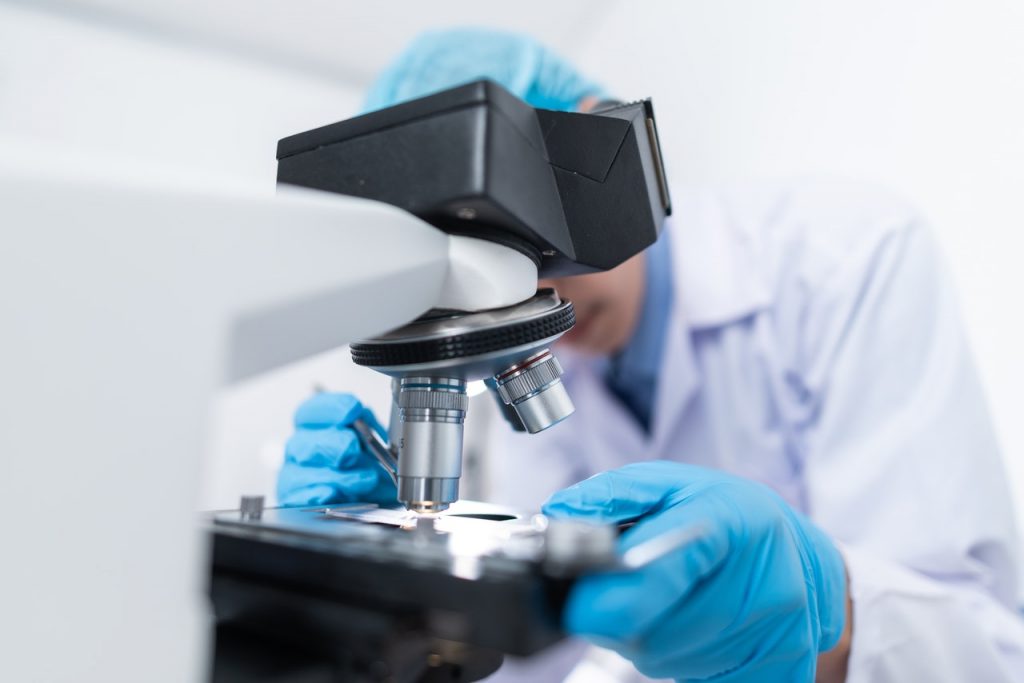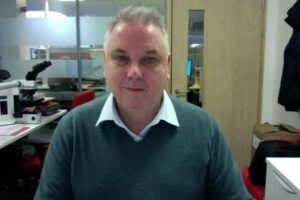What is MND
Find support
I have MND
I am supporting someone
Get involved
Research
About MND Scotland


Shining a light on the important work done by the Edinburgh Brain and Tissue Bank, Colin said: “It’s important to say first that conversations about brain banks can be sensitive and bring up difficult emotions but brain banks are critical for researching diseases like MND.”
Motor neuron disease (MND) is a rapidly progressing terminal illness, which stops signals from the brain reaching the muscles. This can cause someone to lose the ability to walk, talk, eat, drink, or breathe unaided. 1 in 300 people living in Scotland today will develop MND in their lifetime. There is yet no cure or meaningful treatments and the average life expectancy is just 18 months from diagnosis, which is why research is so vitally important.
Professor Smith continued: “We are immensely privileged to receive post-mortem donations from those who have chosen to donate their brain and spinal cord tissues after they die. These donations enable us to understand what happens in the brain and spinal cord tissues as a result of MND, and to better understand the processes that actually cause MND to develop.”
The Edinburgh Brain and Tissue Bank is the only brain bank in Scotland and collects tissue from people with various illnesses and diseases, including motor neuron disease, multiple sclerosis, prion disease and dementia. The donated tissue is then made available to researchers in the UK and around the world who are working towards finding treatments and cures for these devastating diseases.
“The ultimate goal of this work is to develop new therapies to prevent or at least markedly delay, the progression of symptoms in MND at the earliest stage possible. Much of the research is carried out in Edinburgh University, but we also work collaboratively with other institutions in Scotland, and internationally with researchers based in New York.”
Thanking the incredible donors who make this vital research possible, he said: “These studies are only possible through the exceptional gift given to us by patients who agree to post-mortem donation. I am truly humbled by those with MND who agree to post-mortem donation to help future patients with MND, while knowing that any new therapies will not be ready in time to help them. These selfless actions allow vital research to be supported by studying human brain and spinal cord tissues.
“It is a privilege in my role as a neuropathologist to respectfully facilitate the final wishes of a patient who wanted to donate their brain and spinal cord, and to know that every time I approve tissue release for a new research programme, I am supporting their wishes to try and stop this terrible disease.”
Giving thanks to MND Scotland’s fundraisers and supporters, Colin said: “The generous donations of the MND Scotland supporters are vital in enabling projects such as the Edinburgh Brain bank and I would like to thank everyone for their support.”
Help us continue to fund ground-breaking research to bring us closer to a cure and our vision of a world without MND by donating today.
Sign up
for newsletter
Get the latest news and events straight to your inbox.
You can help create a world without MND